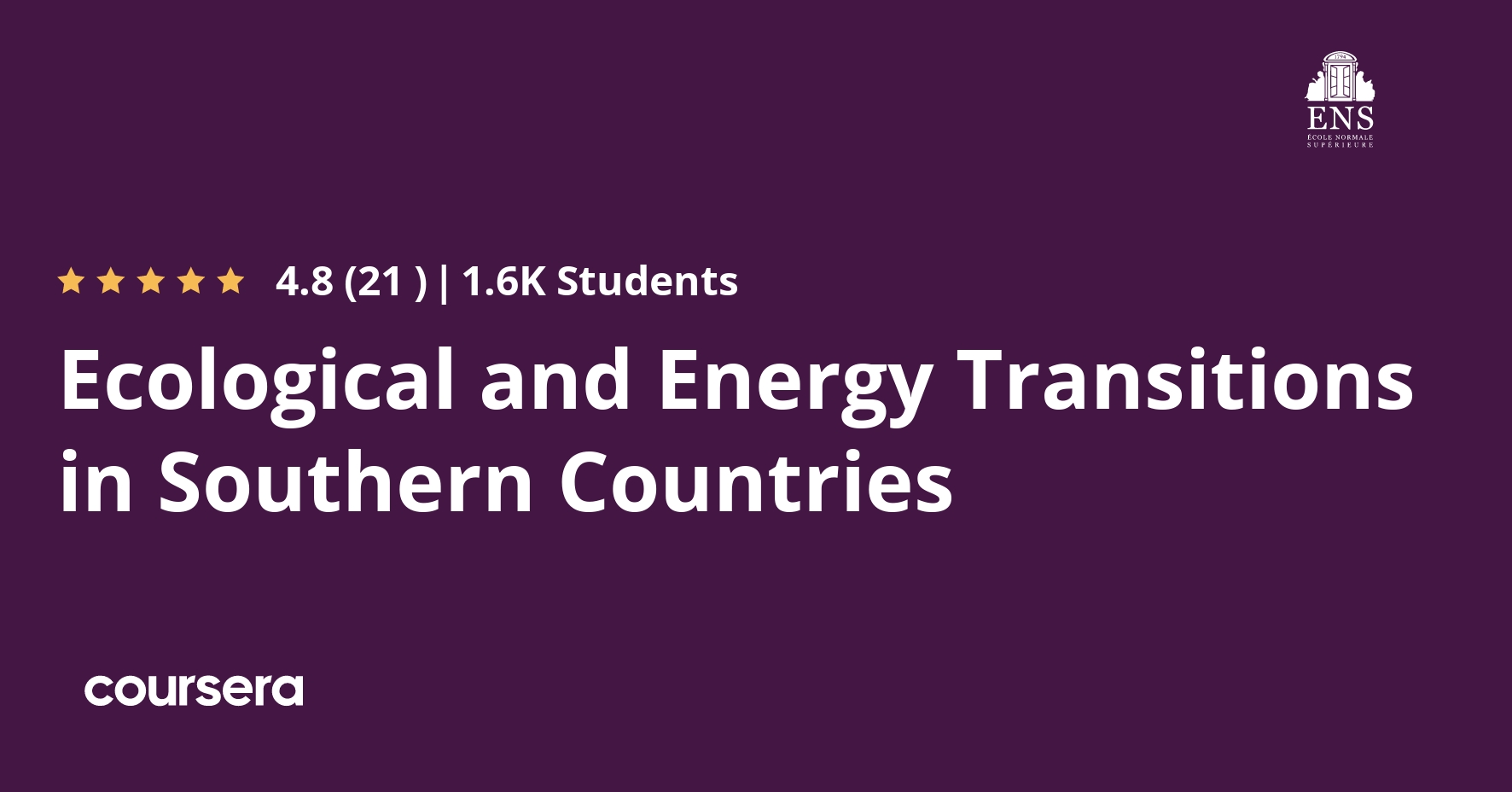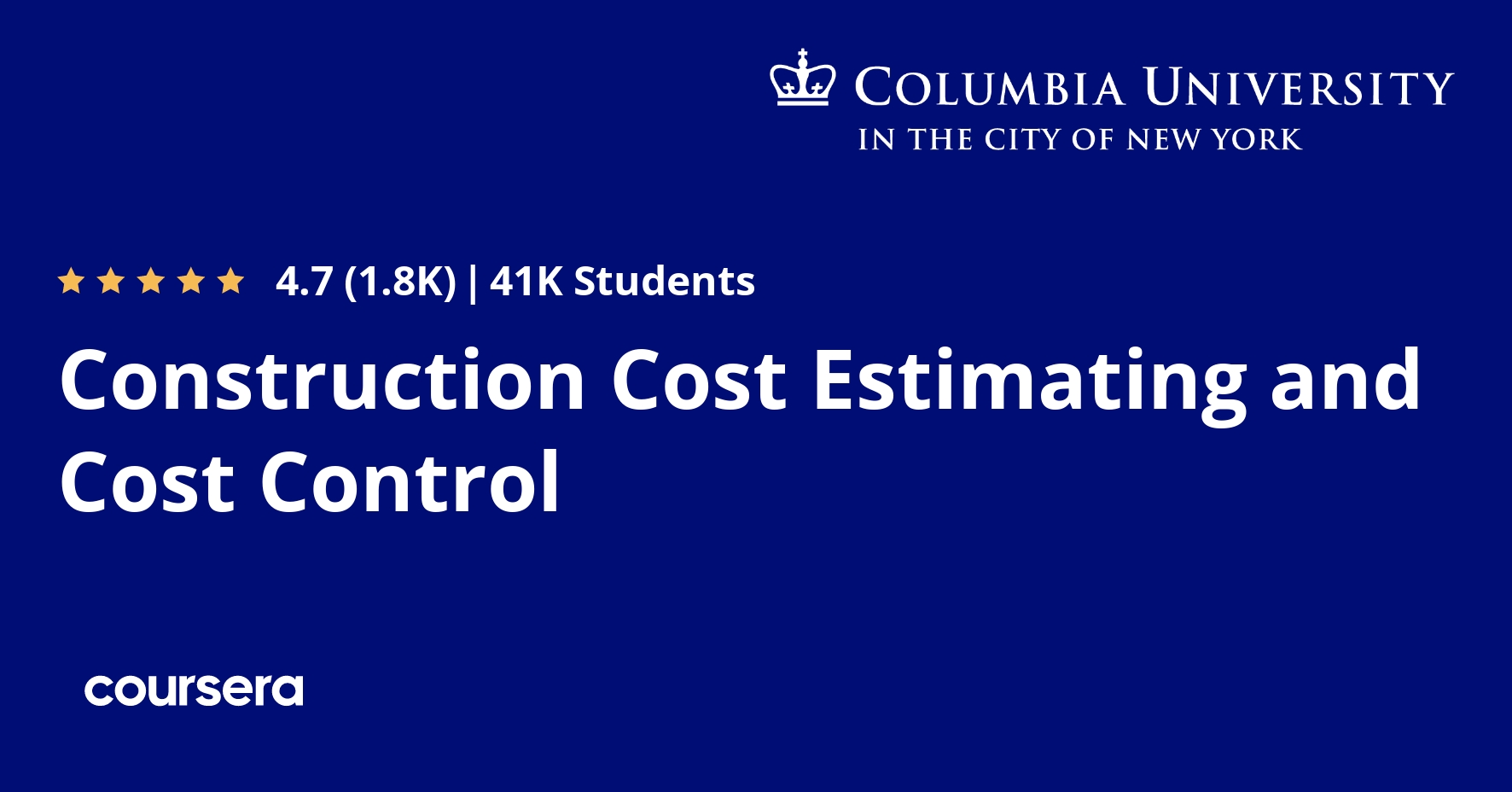Description
The Agence Française de Développement and the Ecole normale supérieure are launching the fourth edition of the MOOC “Ecological and Energy Transitions in Southern Countries”.
This edition will be launched simultaneously in 4 languages:
· In english : Ecological and Energy Transitions in Southern Countries
· In french : Transitions énergétique et écologique dans les pays du Sud
https://www.coursera.org/learn/transitions-energetiques-pays-du-sud/
· In spanish : Transiciones energéticas y ecológicas en los países del Sur
https://www.coursera.org/learn/transiciones-energeticas-y-ecologicas-en-los-paises-del-sur
. In portuguese : Transição energética e ecológica em países do sul https://www.coursera.org/learn/transiao-energtica-e-ecologica-em-paises-do-sul
This MOOC is at the junction between the development of Southern countries and sustainable development.
It has:
1) a macroeconomic and financial dimension, developed by Gael Giraud and Alain Grandjean;
2) an ecological and climatic dimension, developed by David Claessen and ENS speakers; and
3) a focus on Southern countries, developed by AFD speakers.
Here are the learning goals for the entire training program:
Goal 1: Be able to understand the relationship between the energy transition, the ecological transition, the role of energy in our economy, our economic development model, and financing issues.
Goal 2: Know how to advocate for and lobby on issues and on the need to change reality in order to implement strategies and action plans.
Goal 3: Be able to make a link between the Energy transition and financing solutions, and between comprehension and action.
No one questions the imperative need to ensure development based on personal well-being and a fair distribution of wealth.
The Challenges of a Transition for All
Until now the development of Northern countries has been based on an increasing exploitation of energy resources and a greater freedom of trade and exchange at the global scale. We now know that such a model is no longer sustainable, due to global warming and to the overexploitation of resources, which lead to health, social, and environmental disasters.
The Role of Developing Countries
With that in mind, how can we ensure fair and equitable growth for all? What role do countries from the different regions in the South have to play in this complete upheaval of the current economic, trade, and political models in order to achieve an effective energy and ecological transition?
A MOOC to Respond to these Questions
This free online training offers complementary perspectives from several specialists of issues related to climate change and the development of Southern countries. They will share their very practical understanding of the current crises and the answers that can be provided. Participants will learn from studies by:
• Researchers from the prestigious École Normale Supérieure in Paris
• Field experts from the Agence Française de Développement, a funding agency that has been committed to helping developing countries for 75 years,
• Carbone 4 founder Alain Grandjean, who will share his experience, in particular on the economic and financial aspects.
Here is the program:
1. Our development model is ecologically unsustainable
2. The dominant economic models hinder the energy and ecological transition
3. The energy transition path: decarbonizing GDP
4. The model of an ecological transition to new prosperity
5. Governance of the energy and ecological transition
6. Financing the energy and ecological transition
What you will learn
Welcome!
Our development model is ecologically unsustainable
The diagnosis of our current development model is clear: it does little to nothing to address inequalities. Worse, it participates in the aggravation of these, while degrading our planet. Only energy and ecological transitions can reconcile economic growth and the pursuit of the social agenda of all states, both in the North and in the South.
The dominant economic models hinder the energy and ecological transition
Freeing ourselves from market fundamentalism first of all requires the acceptance of new indicators that complement GDP. These go beyond the simple monetary aspect of well-being and take into account not only the positive externalities generated by social sectors, but also the negative environmental externalities associated with human activities. In this way, we will stop measuring fictitious growth and will be able to steer sustainable public policies. At the same time, the success of these policies depends on the ability of the players to base their strategy on the long term. However, without stricter regulation of the financial sphere, the countries of the South will not have the budgetary capacity to finance major projects of the transition.
The energy transition path: decarbonizing GDP
Carbon accounting aims to reconcile the time horizon of our actions with the challenges of the energy transition. It limits short-term behaviour by quantifying the externalities of sectoral activities and legitimises the development of punitive regulations. It facilitates cooperation strategies by making international comparisons possible and ensures the transparency of negotiations. In short, it enables country diagnostics to be established, climate-accounting projects to be identified and investments to be redirected towards green assets.
The model of an ecological transition to new prosperity
Human activities are on the verge of generating a 6th mass extinction! However, biodiversity, the diversity of marine and terrestrial fauna and flora, contributes to the resilience of our ecosystems in the face of climate change. Their preservation is imperative because they provide us with services that are essential to our daily lives, the supply of natural resources and the provision of cultural well-being.






